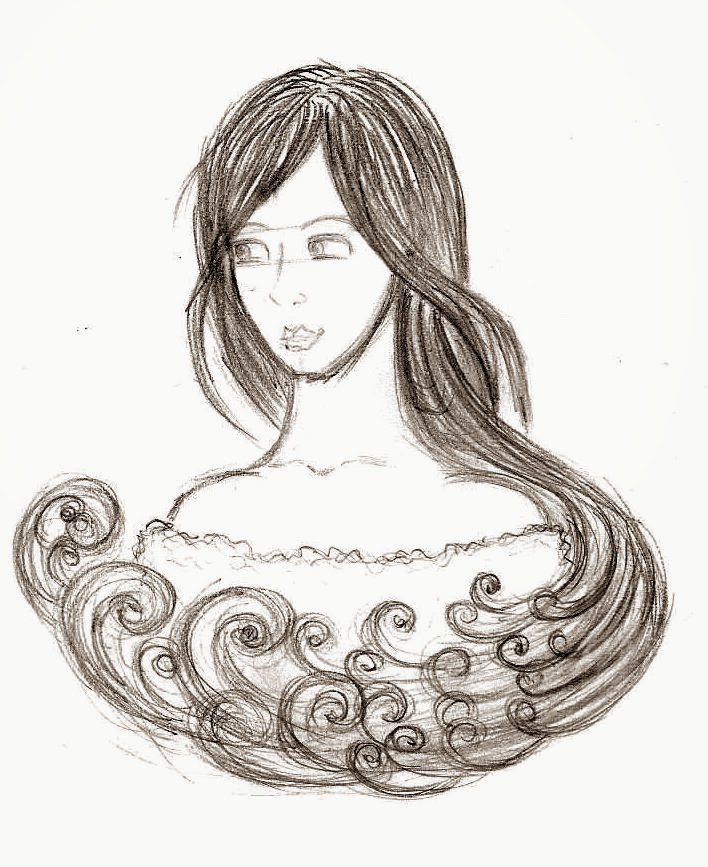As a writer I always find myself either on the brink of elation or depression, while working on a book, and advice on writing, that overflows the Internet, makes me doubt every decision that I've ever made regarding my novel. Instead of helping, it plunges me into an abyss of despair and alienates me from the writing process so completely that I can't look at a word I've written. Maybe that's just me. Maybe my reaction is over-the-top. Maybe my mind is too fragile. I don't know... But I'm being overwhelmed, discouraged and demoralized by all the writing advice that is out there; about how to write your book and how not to write your book; how to begin your book and how not to begin your book, etc..
Especially, the piece of advice about not starting your book with your character waking up or an alarm clock going off. I mean, it seems like such a logical place to start! I would never have thought that there was anything wrong with such a beginning if not for an avalanche of no-no's that I've encountered only this week on Twitter. I know that people who work in the publishing business think that they are helping by pointing out how cliché this or that is, but I also think that there is a huge difference between working in the book business and being a reader and that readers might not mind or might not even notice those things that agents and editors do, simply because they don't care - it doesn't spoil the story for them.
Especially, the piece of advice about not starting your book with your character waking up or an alarm clock going off. I mean, it seems like such a logical place to start! I would never have thought that there was anything wrong with such a beginning if not for an avalanche of no-no's that I've encountered only this week on Twitter. I know that people who work in the publishing business think that they are helping by pointing out how cliché this or that is, but I also think that there is a huge difference between working in the book business and being a reader and that readers might not mind or might not even notice those things that agents and editors do, simply because they don't care - it doesn't spoil the story for them.
I understand that agents and editors are probably fed up with such a beginning and, maybe, an overwhelming number of authors, whose manuscripts they read on a daily basis, begin in such a way, but the thing is that only a small percentage of books that are published (let alone that are submitted to publishing houses and rejected) actually reach the reader. In this way, readers are not exposed to the horrible waking up routine of the main character in the same way. But does it actually hurt the story? I'm pretty sure that readers don't care whether the book starts in the morning, in the afternoon or at night as long as they like the story, the characters or the world that it opens before them.
I don't mean to say that agents and editors are wrong, but I just think that they tend to look at the books in a jaded light of a professional, who has seen it all and craves for something new, and that by rejecting certain things that they regard as dreadful clichés, they deprive readers of their chance to decide for themselves and to choose what they like. It is all so very subjective I'm surprised there are any rules at all! How can you tell what will work and what won't? No two people, no matter how alike they are, have the same reaction to the same book.
I, for one, don't have a problem with passive voice or adverbs. I like them. I'm sure that the majority of readers (and by 'readers' I mean people who read for pleasure and entertainment and not as part of their everyday job, that, like any job, can contain an element of boredom) don't mind them either. Don't even notice them most likely. Personally, I'm pretty sure that readers can draw their own pictures in their minds, while reading, and you don't have to shove everything into their face by 'showing' rather than 'telling'. As though their minds are so weak they can't digest adverbs and interpret them in the correct way. I'm surprised that so many people read and love classics! How do we even process the old-fashioned language nowadays? I sometimes think that people within the publishing business tend to underestimate readers and by imposing rules upon writers trap both writers and readers within a publishing matrix none can escape unless they choose to be self-published. The publishing machine decides what to write and what to read and if you don't fall into their strictly categorized routine then you're out.
I mean how can there be any rules in the land where imagination must run wild? I don't talk about technical aspects, such as grammar, punctuation, logic, consistency, etc., because they are of vital importance. I'm talking about the freedom of writing the story in a way that makes perfect sense to the author and the reader, even if it starts with the alarm clock going off and bores agents and editors to death.

